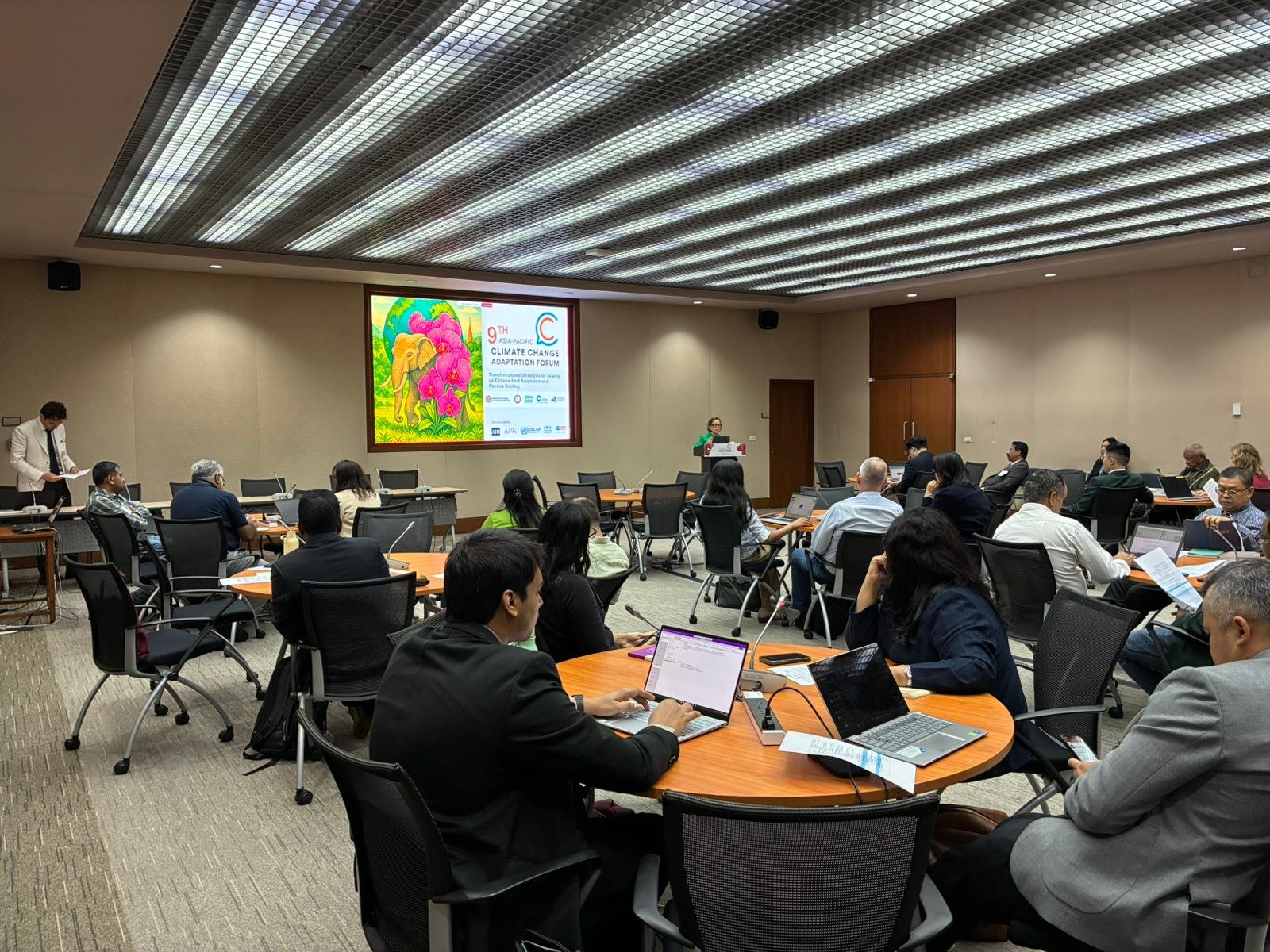Asia–Pacific Forum Urges Scaled Passive Cooling, Regional Strategies Against Extreme Heat
At the 9th Asia-Pacific Climate Change Adaptation Forum, held under the theme “Transformational Strategies for Scaling up Extreme Heat Adaptation and Passive Cooling,” stakeholders from across the region emphasized the urgency of coordinated, inclusive approaches to manage growing heat risks.
The session was convened by the Cool Coalition, ASEAN Centre for Energy, India’s National Disaster Management Authority (NDMA), and the Global Alliance for Buildings and Construction. Speakers highlighted the rising frequency and intensity of extreme heat events in the region and called for strategies that integrate passive cooling, energy efficiency, and refrigerant phasedown.
Marlene Nilsson, Deputy Regional Director, UNEP Asia and the Pacific, emphasized that “cooling is about protecting people,” noting that heat already causes nearly half a million deaths annually, with 45% in Asia. Xiaoyi Jin, Senior Programme Officer, Clean Cooling Collaborative, called for culturally resonant solutions backed by finance, labour, and policy support.
In the first session, national representatives shared experiences from India, Sri Lanka, and the Philippines. S. Rakesh Kumar, Joint Secretary, NDMA, outlined India’s progress with over 250 operational heat action plans, supported by national disaster funds. Benjamin Hickman, Programme Manager, UNEP India, referenced regional frameworks like the Global Cooling Pledge and the BeCool programme as enablers of integrated planning.
Sri Lanka’s Dr. Sunimal Jayathunga called for cross-sector collaboration, while Albert Pagcu Dela Cruz Sr., Commissioner, Climate Change Commission, Philippines, stressed the role of local climate action and nature-based cooling. Brahm Parkash Yadav, NDMA, highlighted challenges such as limited data and the need for localized solutions. Nadine Antenen of the Swiss Agency for Development and Cooperation emphasized data-driven planning and international knowledge exchange.
The second session focused on translating strategy into action. Rio Jon Piter Silitonga, ASEAN Centre for Energy, presented ASEAN’s roadmap for passive cooling, aiming to harmonize policy and build capacity. Raman Kumar Singh, NIUA, discussed India's three-tier approach to integrating cooling into urban planning. Shravan Prabhu, CEEW, identified local implementation gaps and the need to scale heat action plans across thousands of urban bodies in India.
Speakers agreed that effective cooling strategies require more than technical interventions. Addressing extreme heat in Asia–Pacific demands integrated governance, people-centered planning, and strong regional cooperation to embed cooling in social and cultural contexts.
